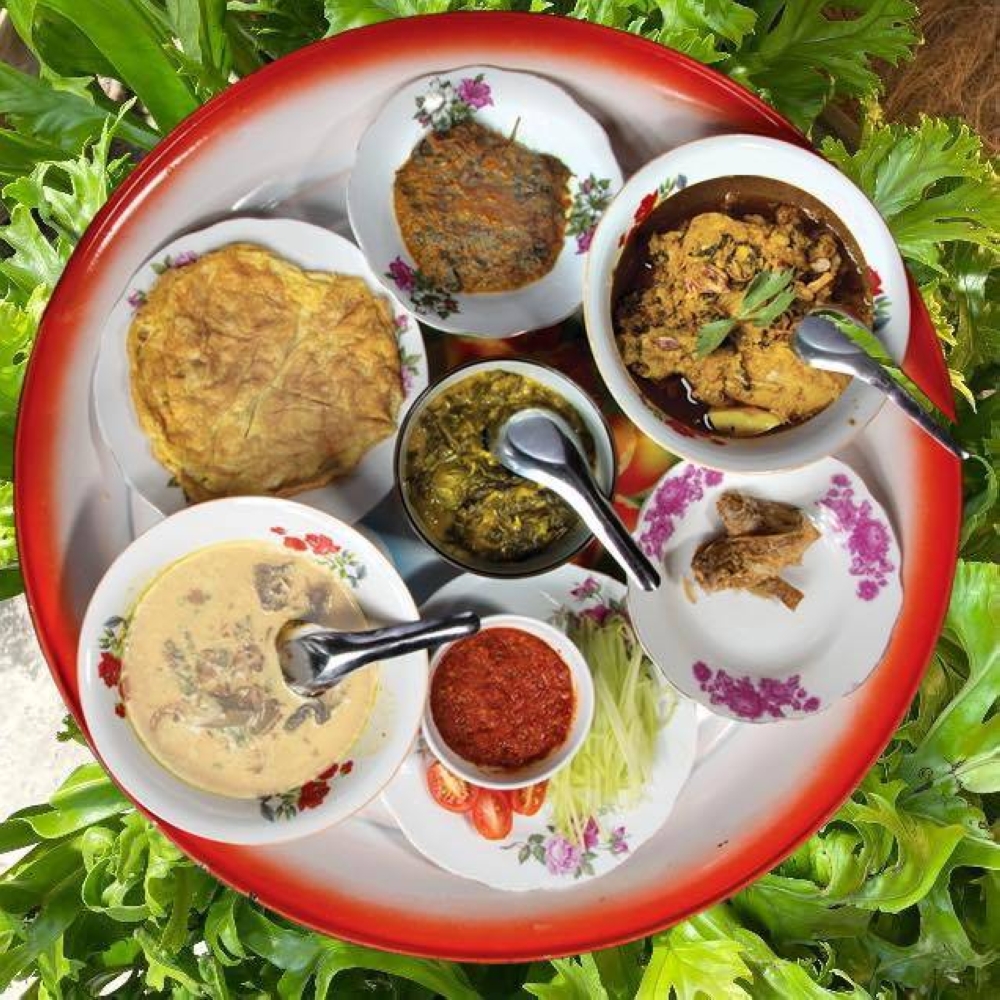Malaysians advised to opt for healthier dishes during Aidilfitri
13 Apr 2023 03:23pm

Delicious food during the festive season can be very tempting - FILEPIC
Consultant Gastroenterologist and Hepatologist at Sunway Medical Centre (SMC) Sunway City, Dr Lim Sim Yee, said that overeating during Aidilfitri can lead to weight gain, especially when consuming more calories than burning them off.
"This can have long-term health consequences, such as an increased risk of obesity and related health conditions like diabetes and heart disease. Eating too much, or consuming high-fat, high-sugar dishes, can also lead to digestive problems, like indigestion, bloating and constipation,” she said in a statement.
Dr Lim advises people to look for healthier options, such as grilled or baked dishes instead of fried or high-fat dishes, and opt for dishes with lean protein, whole grains and plenty of vegetables, as well as controlling portion sizes by taking smaller portions of each dish and eating slowly to help prevent overeating.
She said that managing sugar intake can be challenging during the festive season, as many traditional dishes, drinks and desserts contain high sugar, and people are advised to go for water or unsweetened drinks.
"You can try to make your own drinks by infusing water with fruits and herbs. Fresh fruits can satisfy your sweet cravings without added sugar.
"You can also try making healthier versions of traditional desserts using natural sweeteners, like dates, honey, and maple syrup, instead of white sugar. Reduce the amount of sugar in the recipe and add more fibre-rich ingredients like whole grains or fruits,” she added.
As children are also prone to eating many festive cookies and snacks, as well as drinking syrup-based and carbonated drinks as they go around visiting family and friends, Dr Lim said that parents should set a good example by becoming role models for healthy eating, and making healthy choices in their food intake.
She said that parents should be able to set limits on how much sweet or high-calorie food children can eat each day during the festive period, and encourage them to share their treats with family and friends, rather than eating them all by themselves.
"Encourage them to participate in physical activities such as going for a walk or bike ride. This can help burn off excess calories and energy, and promote a healthy lifestyle,” she added.
Dr Lim also shared some tips to prepare healthier traditional dishes and make healthier food choices, including for rendang dishes by using leaner cuts of meat, such as chicken breast or lean beef, and reducing the amount of coconut milk used. People can also incorporate more vegetables, such as bell peppers and broccoli to increase nutrient density.
For ayam masak merah, people can opt for skinless chicken breasts instead of chicken thighs, which are higher in fat, and reduce the amount of oil. Incorporate more vegetables such as carrots and spinach to increase its nutrient density, and opt for healthier substitutes to salt and sugar, with herbs and spices to flavour the dish.
Kuah kacang can be made with natural peanut butter instead of processed peanut butter, which may contain added salt and sugar, and reduce the amount of sugar and incorporate other nutrient-rich ingredients, such as ginger and garlic, to boost its health benefits.
Sayur lodeh is often made with a variety of vegetables, including beans, eggplant and cabbage. It is a low-calorie, nutrient-dense dish, which is high in fibre and antioxidants. To make it even healthier, reduce the amount of coconut milk, or opt for a lower-fat version.
Acar, a type of pickled vegetable dish often served as a side dish, is a low-calorie, high-fibre dish which is rich in vitamins and minerals. To make it healthier, reduce the amount of salt and sugar.
The ever-popular ketupat provides a good source of energy for the body and is also low in fat and contains no cholesterol. While it is already a healthy option, it can be made even healthier by pairing it with vegetable-based dishes.
Meanwhile, lemang can be made with brown rice instead of glutinous rice, which will provide more fibre and nutrients and reduce the amount of coconut milk, or again opt for a lower-fat option - BERNAMA
Download Sinar Daily application.Click Here!














